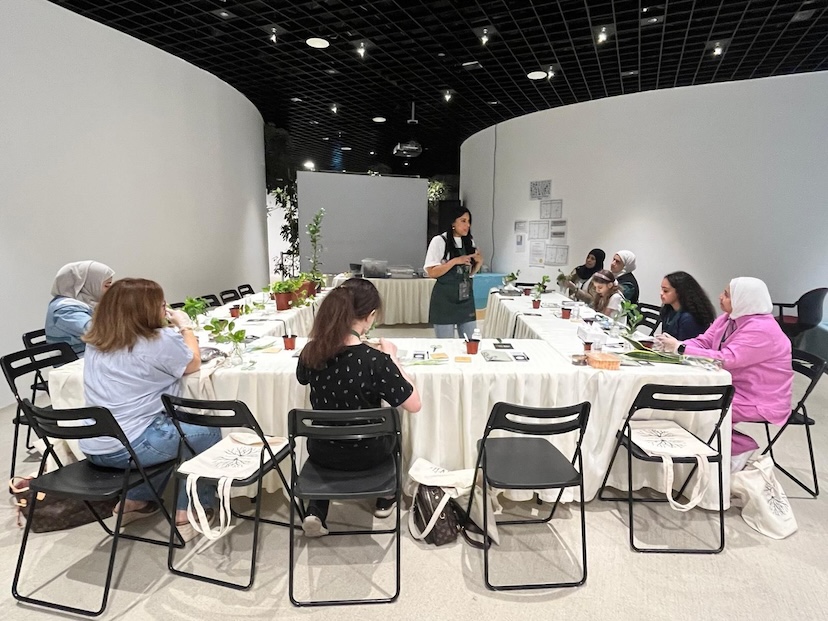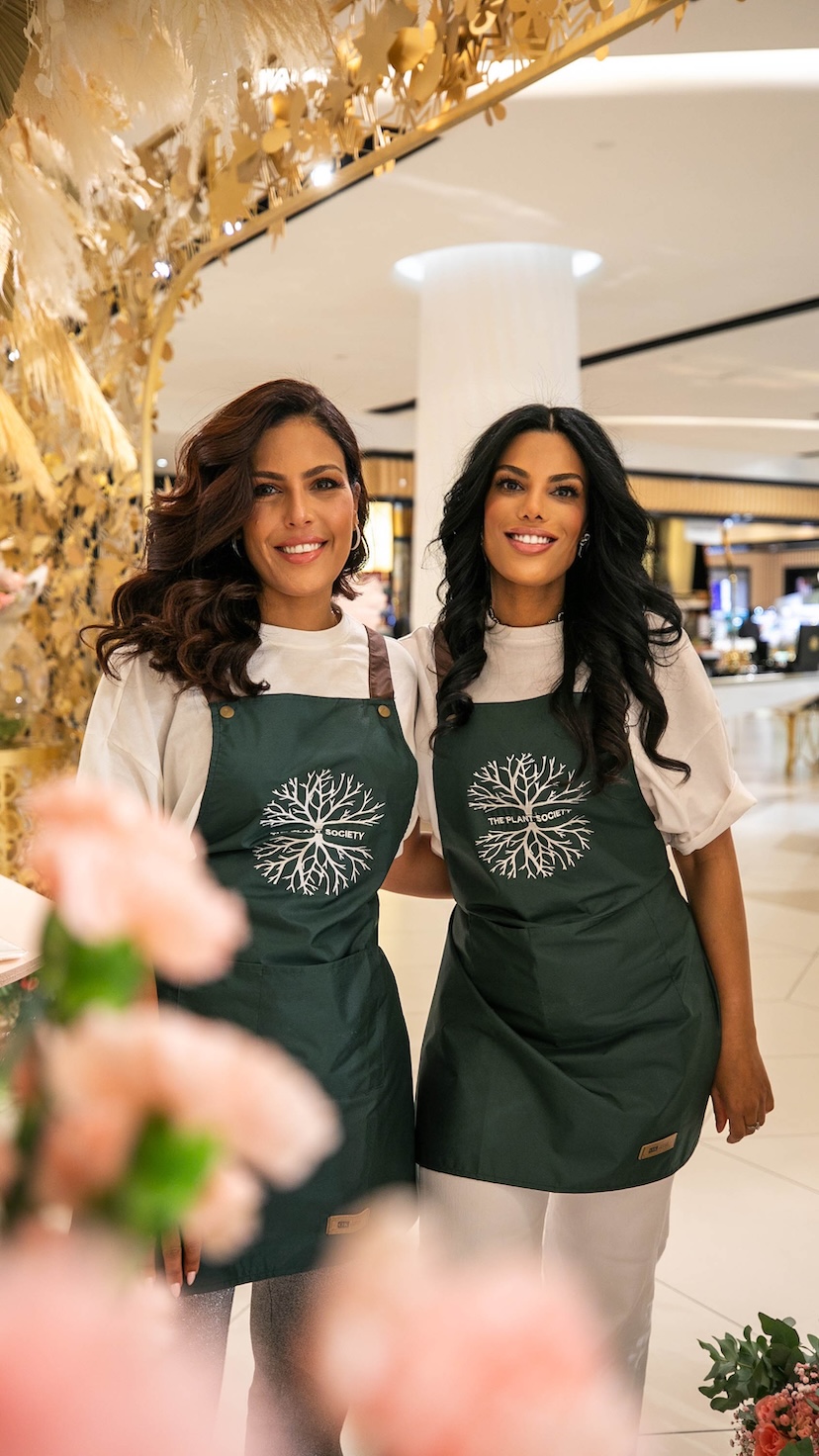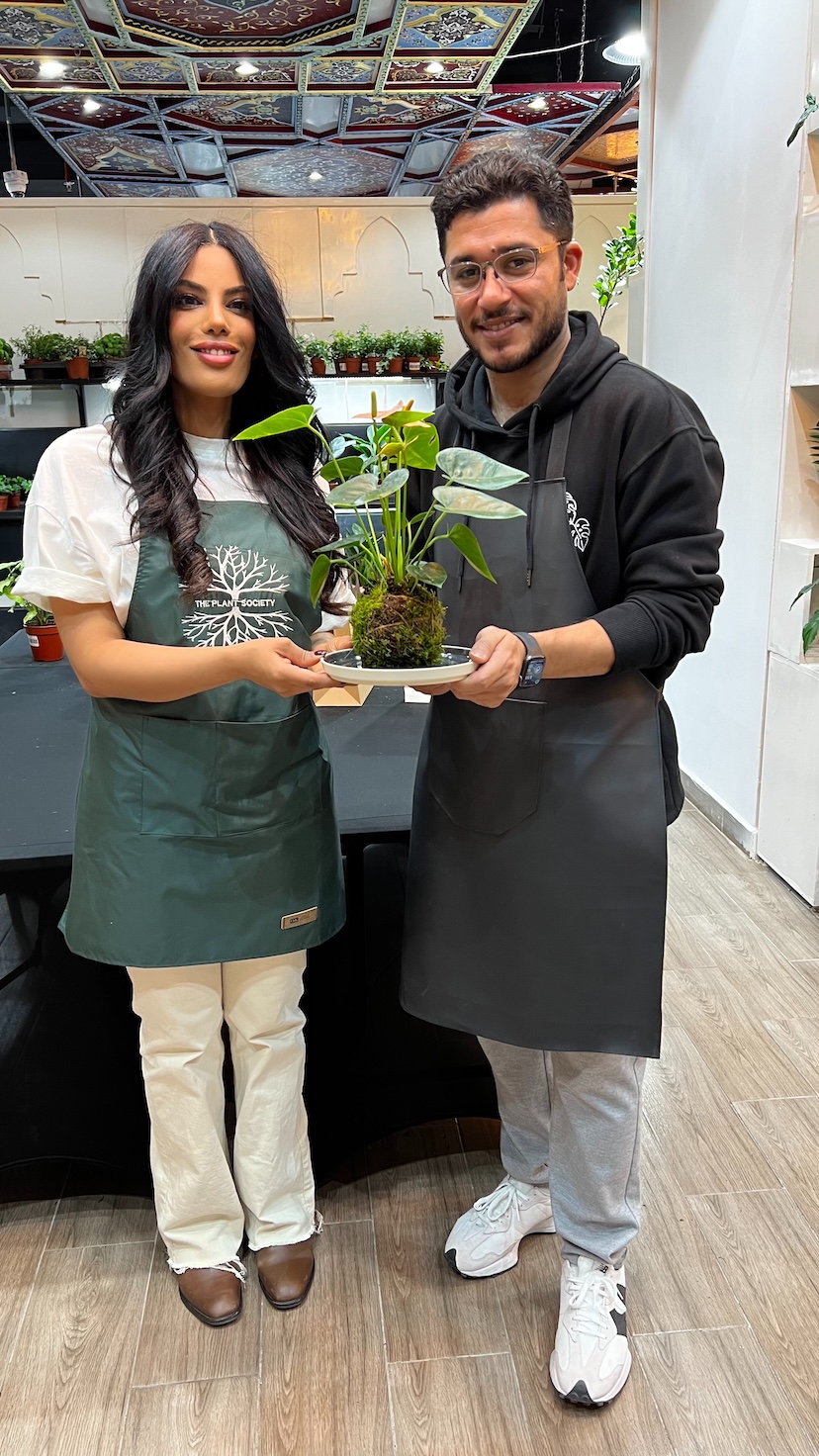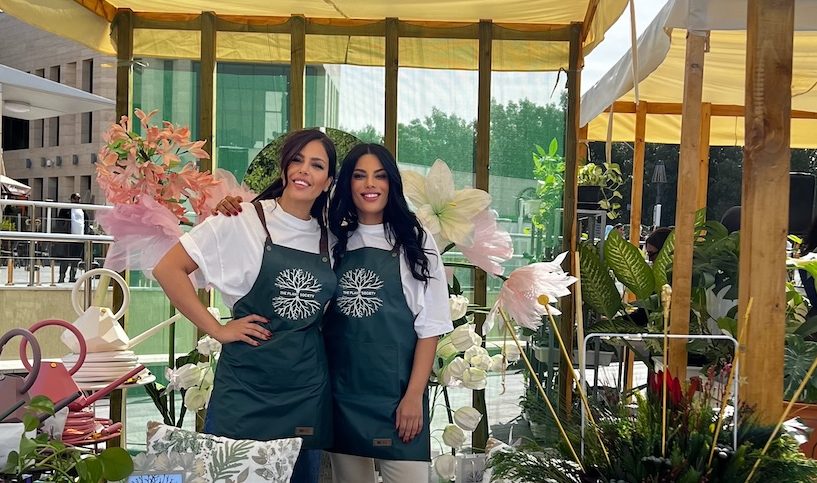Talking Greene is a series of discussions centered on the idea of sustainability in Kuwait, the group leading this movement, and locating tools to assist the general public in making wiser decisions. As a business owner in the same industry, I believe it is my responsibility to promote local organizations and individuals working to change the way we shop for goods and to increase environmental consciousness both domestically and abroad.
In this issue of Talking Greene, we delve into the story of Athari Abdulaziz AlMutawa, the co- founder of The Plant Society. This business offers a unique array of luxury, high-end, and practical gardening equipment. Athari’s mission is to promote more engaging, interactive, and aesthetically pleasing approaches to gardening. As a Kuwait-based entrepreneur with extensive horticultural expertise and a master’s degree in applied science from Australia, Athari’s passion for plants has flourished, and she has recognized the immense potential they hold, especially within the Kuwaiti context.

What was the inspiration behind the idea of The Plant Society?
It all started at home. I love growing my own plants at home, especially in my quarters so when I was growing things at home, and I started buying stuff for myself, I realized that the market in Kuwait was much smaller in comparison to when I was living in Australia and Belgium when it comes to good quality gardening products. I used to go grocery shopping, for example, and find whatever I needed right at the counter or within the vicinity, offering a wider selection of products and choosing them was fun in itself. Whereas in Kuwait, I don’t get that at all and the majority of such products are the same everywhere you go. It becomes very monotonous and boring. I found myself wondering if I was the sole individual facing a similar predicament, and consequently decided to source exceptional products that are visually appealing, clean, and aesthetically pleasing, ultimately enhancing the enjoyment of gardening. I believe that we all should surround ourselves with beautiful things when we can and this would obviously make us feel better and enjoy our surroundings and feel rested.
Can you give our readers an idea on the native plants in Kuwait?
The region is home to over 374 species of native plants, with some unfortunately endangered. Many of these plants are native exclusively to the Middle East and have a rich history, with a significant number used for medicinal purposes. Looking back, these plants were widely utilized as medicine and animal feed, but regrettably, that connection has been lost over time.
Can’t such plants be reintroduced in the country?
Some are endangered, and some still exist. However, some of the issues are related to the lack of information or educating people on how to use them from ethnobotany to bring it back to modern day science. It is just a matter of finding that missing link, which isn’t easy
and requires a lot of work, research, and more importantly funding, to reintroduce it to modern day Kuwait.

As a woman in the sustainable industry in Kuwait, what are some of the hurdles or struggles have you faced?
As a woman working in the government sector and the industry, I’m in, I faced two significant challenges. The government realm was predominantly male dominated, especially in my workplace, which included engineers, farmers, and other personnel. I recall an instance where I wanted to join the workers and use a shovel to dig a hole and help with planting, but they insisted I shouldn’t, citing my gender and the belief that such hard labor is not suitable for women. However, I had previously engaged in such labor back in Australia and enjoyed it. As someone passionate about my profession, I don’t mind getting hands-on and performing manual labor, as I consider it an integral part of my work. Despite the obstacles, I persevered in establishing the Plant Society, and I encourage others to pursue their goals, especially in their careers, with determination and resilience.
Despite the challenges, I have also been very fortunate to receive tremendous support from my family, friends, and even colleagues throughout this process. I have also been blessed with a few exceptional mentors who have been instrumental in assisting me, whether at my job or with the Plant Society. I would like to take a moment to acknowledge some of these individuals.,my sister Amnah Almutawa, Ali Al-Gaith, Dr Amal Abdulkareem Abdullah and Proceso T. Ramos Jr and Muhammad Riaz Feroz Din.
I have also had great support from people wanting to get involved in some way, whether sharing with me helpful information about horticulture or wanting to purchase products from me as support because they see the quality that I am investing in.

What’s in store for the upcoming period for The Plant Society?
I thoroughly enjoy giving plant workshops, as there is significant demand for them. Many people express keen interest in learning about plants, and some wish for their young ones to participate as well. I stumbled into giving these workshops by chance and have been pleasantly surprised by how much I’ve enjoyed them. I particularly enjoy teaching children, especially when it comes to raising awareness about how foods are sourced like chocolate, as some are unaware that cocoa comes from plants. Engagingly educating the youth is crucial, so they develop a deep appreciation for the value of plants and their importance to life on Earth.
Follow @theplantsociety.kw on Instagram to learn more plants and upcoming events.








